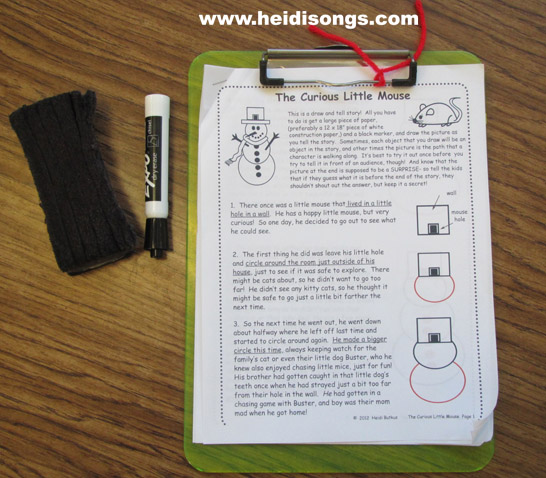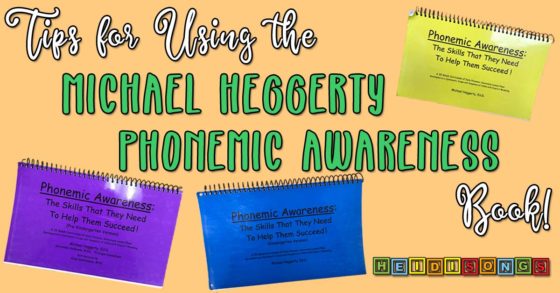The Calendar Book
Have you heard the news? We've Moved to HeidiSongs.tv!
Our new website features an online video streaming service, updated blog posts at Heidisongs.blog, and a wealth of fresh resources designed to make learning even more fun and engaging.
You can also continue shopping for our educational products there and at our Teachers Pay Teachers store!
Head over to HeidiSongs.tv now and explore all the exciting new features.
See you there!
__________________________________________________________________________
Have you ever heard of the Calendar Book? The Calendar book is not a game, but a daily activity that can be done whole group. When you do the Calendar Book with your class, the children have their own calendar books that they fill in as you update the class calendar each day, or as close to daily as you can get. The Calendar Book can have as few or as many pages in it as you like.

The general idea is that it starts out simple near the beginning of the year, and then you add a new component (or page to do) each month. Of course, the more components you add to it, the longer it takes a class to complete it. So you can “tweak it” to make it last as long as you want it to last.

Usually, a calendar book contains (at least) a copy of the monthly calendar, to which the children add the date. Then after that, usually there would be a 1-100 chart to which the children add one number each day when the teacher adds a number to the big one on the wall (assuming you have one, of course!). Beyond that, you can have children write the date, tell whether the date is an odd or an even number, make a tally mark for each day, graph the weather, note children’s birthdays, color in Zero the Hero on every tenth day, etc., etc., etc.

You will find many of these pages here as free downloads for you, just in case you want to start a calendar book of your own. My kids had trouble fitting the letters of the months into the spaces on the Write the Date paper, so I gave you a couple of versions with the months written in for the children in a traceable font. I have included an updated copy of Write the Date calendar pages for 2019 here, and 2020 for you here! As you can see in the pictures, I added a whole language arts component to our calendar book with the “Word Family of the Day” and the “Sight Word of the Day.” Basically, the children would copy one of the words from the wall per day into their books. I always have these words stapled up next to my calendar (and I change them often, if not monthly) so it was a natural progression for me to include it in our calendar book. I am including these sheets for you as your free download this week, too! Other things we added were:

1. A Zoo Animal Probability Graph. To do this, we had a bag with one of each zoo animal in it, and the helper of the day reached into the bag and pulled one out without looking. Then we colored in a square for each animal that we pulled out. We just did one animal per day, and worked on it over time. But if you do not have time to commit to doing a whole calendar book, this would be a fun activity to do whole group, and just let the children take turns pulling out an animal until one of the columns is filled. Download here!

2. A Word Problem of the Day. To do this, I gave them a very simple sheet of paper that was divided into sections that were large enough for an equation and a picture, and then I would make up a random math word problem on the spot, such as, “There were two ducks and two more came. How many were there in all? Draw a picture and write the equation.” So we did one of these problems each day. It really helped the children prepare for their problem solving test.
Shari Sloane’s website, www.kidscount1234.com, has lots of calendar book pages that you can download free! But since the better clip art is usually copyrighted, she had to strip most of it off, so you may wish to add some of your own or eventually recreate your own papers with your own clip art. I personally started with her copies, and then gradually created my own as time went by. The ones that I have posted for you here today use only the artwork that I drew myself, so the copyright issue is not a problem for me.

When we first started, I was worried about some of my struggling students being able to keep up and understand what was expected of them during this time. So I decided to do our first week of Calendar Book entries in small groups as a part of our morning rotation. That allowed me to help each child understand what I expected and get them started. Once I was confident that they could all do it, I switched it to a whole group activity. I also pulled a few of my high kids aside and gave each of them one of my lower students as a buddy to help as we went along. I told them to show their buddy where to fill in the answers if he or she was lost, and to help them stay on the right page. I also learned to xerox the different pages each on different colors, and that made a HUGE difference for some of my low kids in knowing where we were in the book. They could see that in my book, I was on the pink page, and so they should also be on the pink page as well, etc. For children with fine motor or other issues, sometimes it helps to fill in the answers with dotted print on the computer on their pages only. That way, they can follow along without extra assistance in a whole group situation.

The Calendar Book is a great thing to do in the afternoon, if you have a long block of time to fill. We just waited until the afternoon to update our entire calendar. The only problem is, if you decide to do it, the children will want you to do it every single day! By the end of the year, you can have so many components in there that you really are reviewing a LOT of concepts in during this time every single day. I finally got my children to accept doing the calendar book on Mondays, Tuesdays, and Wednesdays only, and then we would catch up on the missed days (just the very basic calendar sheets) on the Monday of the following week. I did this because for us, Thursdays are a Compact Day, and we never had enough time to do finish our calendar book. Then on Fridays, we were supposed to go to the library right in the middle of our block of time that we usually set aside for the calendar book, so it just wasn’t working out well to do it five days a week.
Last year, I had such a “chatty” group that I knew that this activity would be quite a challenge. I also had a student teacher that was supposed to be taking over for the last six weeks of the year! I must admit that I just couldn’t visualize my student teacher managing this activity with this particularly challenging group of children. There were a few of them that really never mastered keeping their thoughts to themselves during whole group activities like this, so for the first time in YEARS, we did NOT do the calendar book! I just felt that it would be an exercise in frustration for all concerned. I also really didn’t have the volunteer help to keep the calendar book updated with fresh papers each month. So I opted for more activities that we could learn from that would still allow them to talk and move around a bit more, since this seemed to suit the learning style of my group last year. We also did more journaling and more science experiments, so it all turned out okay. I can’t wait to see what next year will bring! I am hoping (and praying!) for a group that loves to sing, learns well through singing, and with lots of supportive parents.
What does your “dream class” look like?
 Enjoy what is left of your summer, (if there is any of it left!) and keep on hoping and praying for that “wonder” class!
Enjoy what is left of your summer, (if there is any of it left!) and keep on hoping and praying for that “wonder” class!– Heidi
----------------------------------
Follow me! Did you enjoy this post? Do me a favor and share it with your friends! And follow this blog by signing up for my email updates here, or follow on Bloglovin', or follow me on TPT! I'm also on Pinterest, Facebook, Twitter, Instagram, Google+ and YouTube, too! Don't forget to sign up for our email newsletter for special deals and promo codes that you won't find out about anywhere else.










